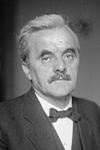Republican Party presidential primaries, 1932
|
|
|||||||||||||||||||||||||||||||||||||||||||||||
|---|---|---|---|---|---|---|---|---|---|---|---|---|---|---|---|---|---|---|---|---|---|---|---|---|---|---|---|---|---|---|---|---|---|---|---|---|---|---|---|---|---|---|---|---|---|---|---|
|
|||||||||||||||||||||||||||||||||||||||||||||||
|
|||||||||||||||||||||||||||||||||||||||||||||||
|
|||||||||||||||||||||||||||||||||||||||||||||||
The 1932 Republican presidential primaries were the selection process by which voters of the Republican Party chose its nominee for President of the United States in the 1932 U.S. presidential election. The nominee was selected through a series of primary elections and caucuses culminating in the 1932 Republican National Convention held from June 14 to June 16, 1932, in Chicago, Illinois.
As the year 1932 began, the Republican Party believed Hoover's protectionism and aggressive fiscal policies would solve the depression. Whether they were successful or not, President Herbert Hoover controlled the party and had little trouble securing a re-nomination.
Little-known former United States Senator Joseph I. France ran against Hoover in the primaries, but Hoover was often unopposed. France's primary wins were tempered by his defeat to Hoover in his home state of Maryland and the fact that few delegates to the national convention were chosen in the primaries.
Former Senator Joseph I. France from Maryland
Mayor Jacob Coxey from Ohio
U.S. Representative Royal C. Johnson from South Dakota
Senator George W. Norris from Nebraska
...
Wikipedia





